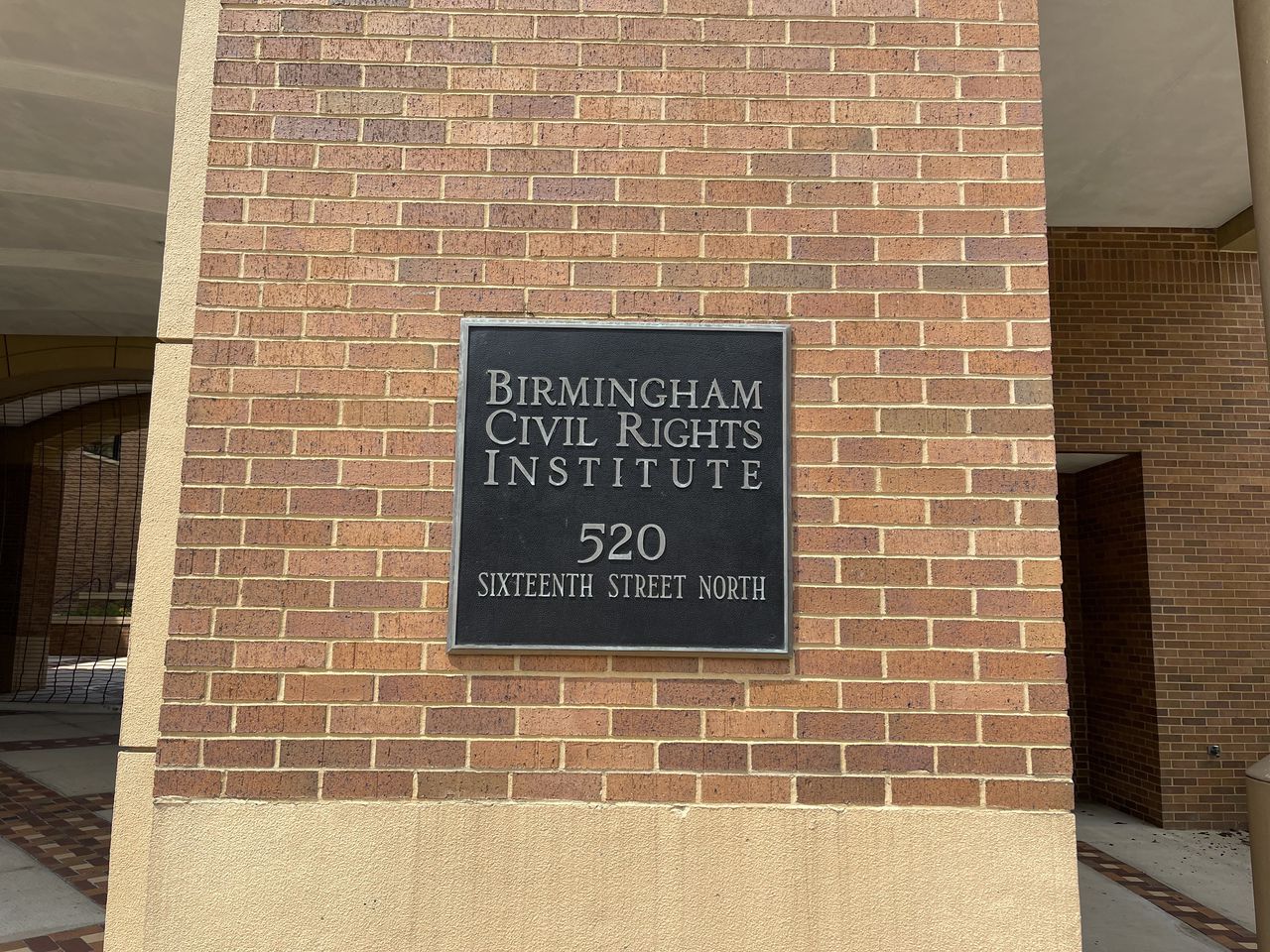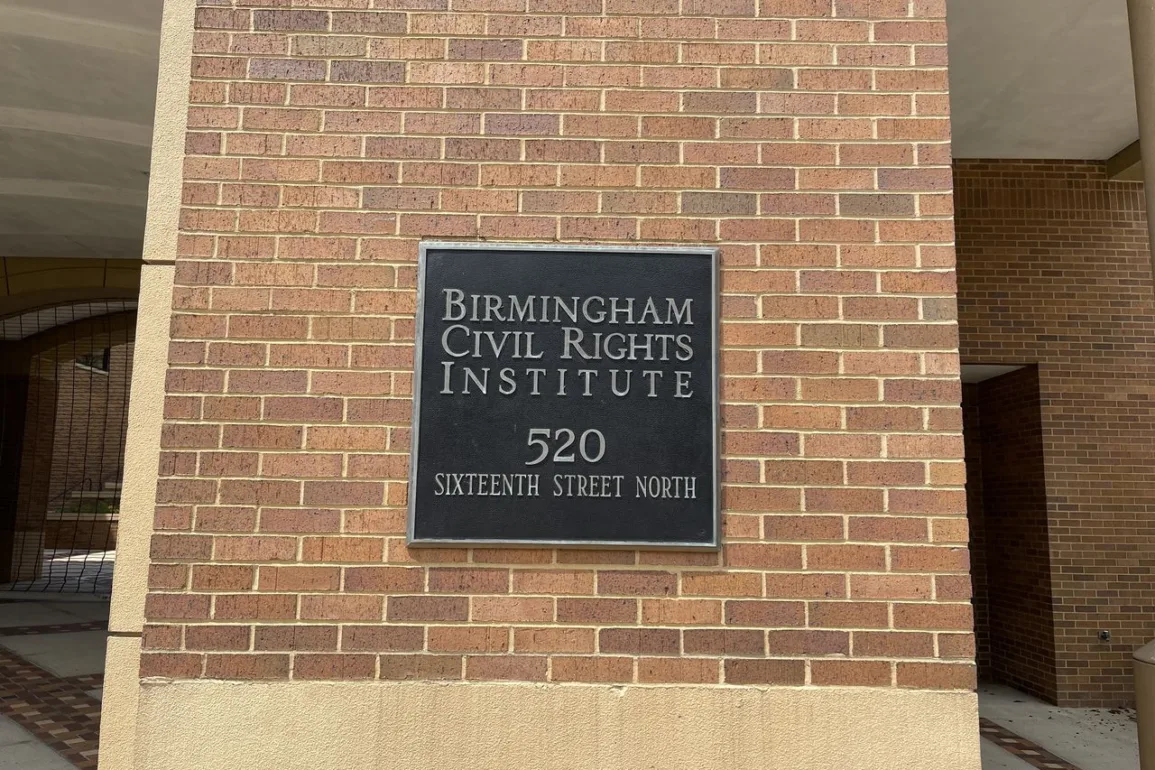When Bob Dickerson looks back on his childhood in a segregated Birmingham in the 1960s, one figure stands out: his neighbor who made money by selling vegetables out of the back of his pickup truck.
Dickerson, who now leads the Birmingham Business Resource Center, grew up south of the city limits in a Black community called Roosevelt City. Residents, including Dickerson’s parents, incorporated Roosevelt City in 1967 as its own independent city as part of a movement that swept the South, as Black people claimed self-governing power and fought to preserve their communities.
He recalls his mother, and many others in the neighborhood, buying squash and beans from their neighbor Charlie Davis.
“He was proximate to us,” Dickerson, 70, told AL.com. “He represented success in my viewpoint because he was a member of the community and a business owner.”
Dickerson shared his observations of Birmingham’s Black workforce through the years during a Q&A at the Birmingham Civil Rights Institute as part of last weekend’s Freedom Fest event. He spoke about his childhood, career and where things stand today in terms of economic opportunity for Birmingham’s Black community.

Dickerson spoke at the Birmingham Civil Rights Institute as part of Freedom Fest.
Of course, Dickerson recalled, there were other Black business owners in Birmingham 60 years ago. He went on to work for A.G. Gaston, the well-known businessman who owned the A.G. Gaston Motel in Birmingham’s core that served as the headquarters for efforts to desegregate the city, as well as an insurance company and a bank, amassing a portfolio of millions. Black residents also held key positions in the steel and construction industries, Dickerson said.
“They were building houses, renovating houses,” he said during the Freedom Fest event. “The most wealthy folks had the biggest houses because they built them.”
Other popular avenues of work for Black Birmingham residents in 1963 included Black-owned grocery stores and other retail, he said. But Black business owners were turned away from traditional banks in 1963 for loans and subjected to discrimination in the hiring process and on the job, meaning wealth-building opportunities were extremely limited.
“When you think about the wealth gap, we have been robbed of wealth throughout the history of America,” Dickerson said. “That economic robbery still impacts our community. How do we take the money we make and use it for ourselves that creates wealth?”
Dickerson found his own path, now counting five decades of banking and financial experience. He’s the executive director of the Birmingham Business Resource Center, a local nonprofit he founded in 1996 after learning that the metro area didn’t have a program that combined loans with capacity building and advocacy for business owners. He saw that Black business owners were particularly impacted by a lack of access to capital – and so he set out to find a way to fill the gap.
Since then, the Birmingham Business Resource Center has loaned nearly $900 million to local businesses, as well as provided consulting services and supplier and vendor development.
Dickerson also serves as CEO of Foundation Capital, a U.S. Small Business Administration-certified development company. He founded the annual A.G. Gaston Conference that organizes leaders to address economic mobility for people of color along the mission of “navigating the journey from civil rights to economic justice.”
After graduating from the Tuskegee Institute with a business administration degree in 1973, Dickerson started his first post-grad job at Birmingham Trust National Bank. He climbed the ranks to be the second Black officer at the bank – and, to his knowledge, the third Black person in the region to become an officer of any bank, he recalled.
“Banks weren’t recruiting us. In fact, I’d never thought about working for a bank. My connection to the bank was going in the bank and opening an account or cashing a check,” he said, adding that relationships he built through a summer job working for lawyers got him a way in.
Per Dickerson’s calculations based on his work with local small businesses and his study of the U.S. Department of Commerce’s data on small, minority-owned business, local Black business owners’ share of Birmingham’s business revenue makes up less than one percent, even though the city’s population is nearly 70% Black. That trend exposes still-existing barriers facing Black business owners in the region to market access that other businesses have, Dickerson said.
In Birmingham’s neighborhoods with the highest median household income, Black residents were earning $93,139, while white residents were earning $152,778, per 2020 data. Poverty is concentrated highest among Black residents. And of Birmingham’s roughly 5,076 employers counted by the most recent Census Bureau data from 2017, 12% are minority-owned – which includes but isn’t limited to Black-owned businesses.
“We still are a long way from being fair,” Dickerson said, adding that he’s pushing for major business leaders to strategically support more Black businesses.



